




















Classes and professors that ignite your curiosity. A campus at the foot of the majestic Rockies. Intelligent (and fun!) peers who challenge and support you. A place you can call home.

For 150 years, Colorado College has provided a robust learning and living experience, with 50 years on our collaborative, innovative Block Plan, where you take only one class at a time. (No, really, just one.)
On the Block Plan, time works differently. So do we. We climb higher, we problem-solve faster, we look deeper. And so can you.
At CC, we don’t settle. We’re committed to antiracism. We’ve achieved carbon neutrality. We push boundaries and surpass expectations. On the Block, we think outside the box.
From scientists and politicians to designers and community organizers and anything and everything else, the CC education prepares you for any path you choose. A singular academic focus provides flexibility in your schedule, for academic pursuits and passions outside the classroom.
Our community is made stronger with more doers, thinkers, and dreamers. Like YOU. We can’t wait for you to join us!

Can you learn cellular biology in just 3.5 weeks? Yes! With the one-class-at-a-time approach of the Block Plan, you’ll immerse yourself so profoundly into the material — without any distractions from other subjects — that you’ll walk away with a deeper understanding.
It all started 53 years ago with a group of innovators, including faculty and students, hoping to influence the way we teach and learn during a time of educational experimentation. Those innovators asked themselves, how can we do what we’re doing better?










Average class size = 16




3 1/2 WEEKS per block
8 BLOCKS per academic year
4 1/2 DAYS block break
Not only better, but different. We think differently, we learn differently, and with the Block Plan, time unfolds a bit differently, too. One three-hour class (on average) a day, five days a week, for three and a half weeks. One “block” is equal to one class on a typical semester plan.

CC took a risk by implementing this unconventional learning format, just as we encourage you to take risks every day in your educational adventure. By the time you graduate, you will be equipped with the tangible, real-world skills to take on any challenge.


I was drawn to the rigor of the Block Plan, for sure. I’ve always wanted to challenge myself. I was especially interested in the idea of being able to focus on specific subjects and classes one at a time, and what depth of learning that may provide. For me, it just works. I’m interested in the intersection of programming and humanity, and I want to know how I can use computer science to make change. Studying computer science at a liberal arts college is really awesome. It gives me a more human-focused perspective on skill sets like data gathering, reporting, and settings.



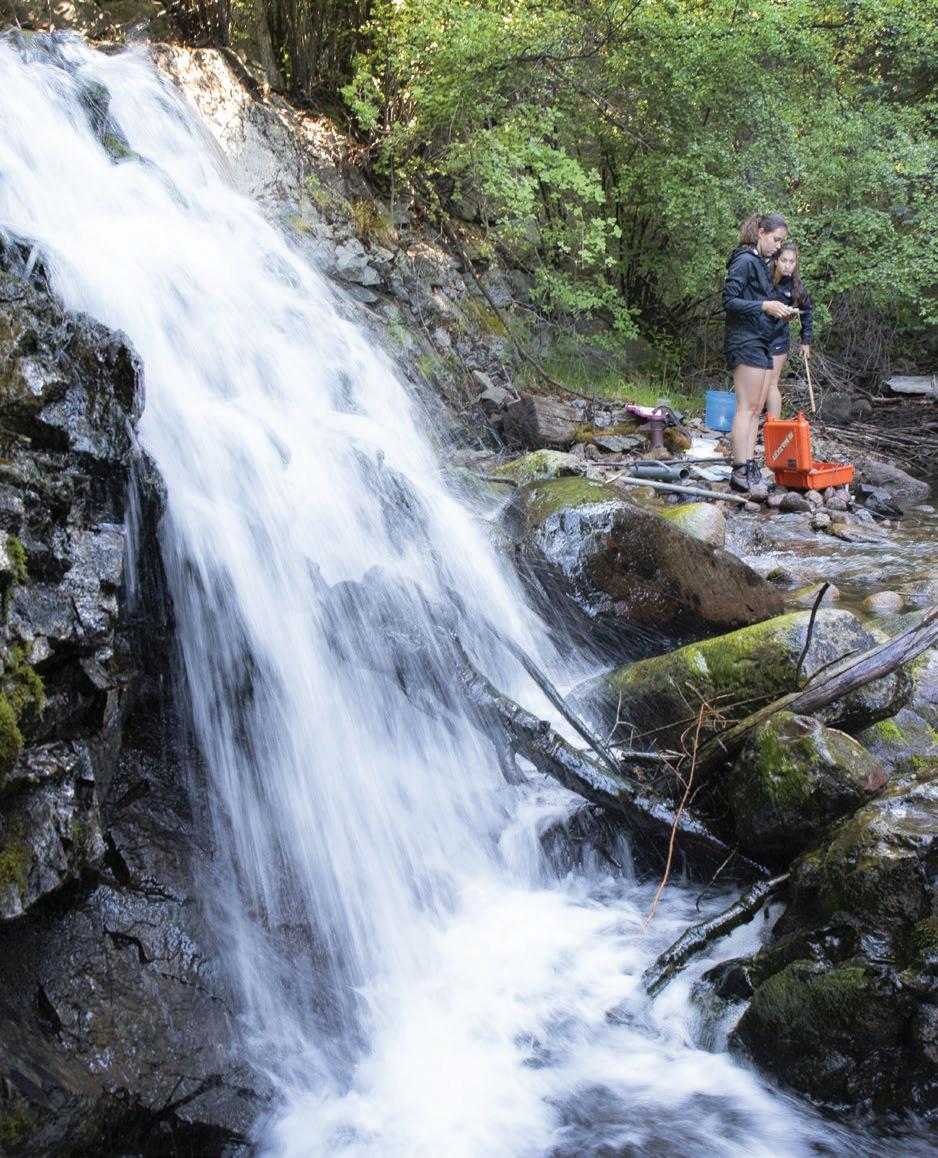

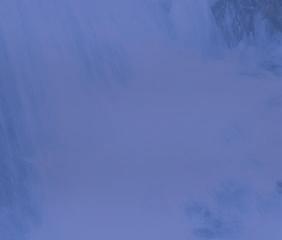



 Walt Jones ’25
he / him / his Computer Science Denver, CO
Walt Jones ’25
he / him / his Computer Science Denver, CO
“I really enjoy the focus and intensity that the Block Plan has — it’s the defining factor of CC.”Escape the typical science classroom and collect riverbed samples from across the state for a summer research project.
Discover more about learning and life on the Block Plan: coloradocollege.edu/blockplan




 Head to the Denver Art Museum to study the impact of architecture on people and spaces.
Study complex math and computer algorithms with your classmates at the CC Gilmore Stabler Cabin.
Observe the ecology of trees and wildlife in one of Colorado’s 11 national forests.
Research and discuss topics and participate in Socratic seminars to share your perspective.
Head to the Denver Art Museum to study the impact of architecture on people and spaces.
Study complex math and computer algorithms with your classmates at the CC Gilmore Stabler Cabin.
Observe the ecology of trees and wildlife in one of Colorado’s 11 national forests.
Research and discuss topics and participate in Socratic seminars to share your perspective.


Omaha, NE
I found my community at CC through clubs and organizations. Initially, the Bridge Program was where I made my first few friends, and I am still friends with them to this day. Later I was involved in SOMOS and, being the co-chair, I got the opportunity to meet more people and establish more friendships. Also, having the ability to travel and not worry about other classes is nice. I have taken past trips to Mexico and will be taking other study abroad classes in the future.


“I have felt most immersed in the Block Plan during my Spanish classes. I am a native Spanish speaker, so having the opportunity to only speak Spanish for longer periods of times makes me feel more at home.”
I knew I wanted to go to medical school when I arrived here, that’s always been my aim. With my major, I found something I really liked that was taught in an incredibly engaging way. The faculty really make or break it. The quality of CC faculty challenges students to grow in ways that they may not have expected. Being from a place so far away and different from here, I try to find a sense of home wherever I can, and Professor Olivia Hatton and the Molecular Biology faculty really did that for me.

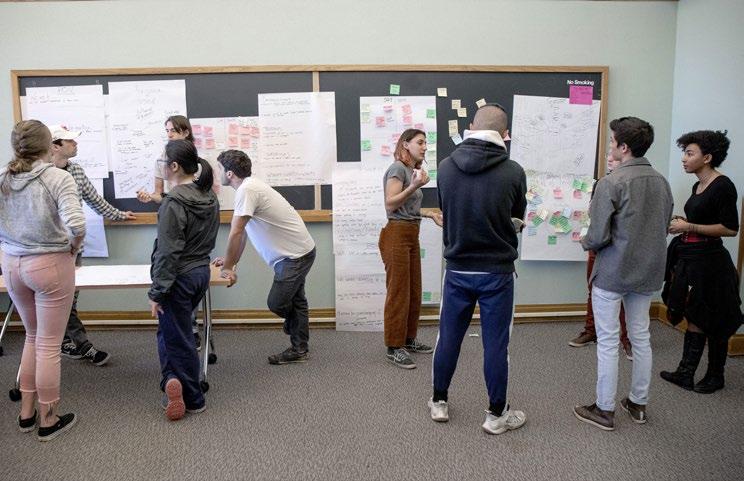

 Ryenne Ching ’24
she / her / hers Molecular Biology / Dance Honolulu, HI
Ryenne Ching ’24
she / her / hers Molecular Biology / Dance Honolulu, HI
“I’m taking classes I’m interested in, and doing other things outside of class that I’m passionate about. I have that freedom of choice here.”

What’s it like teaching on the Block Plan?

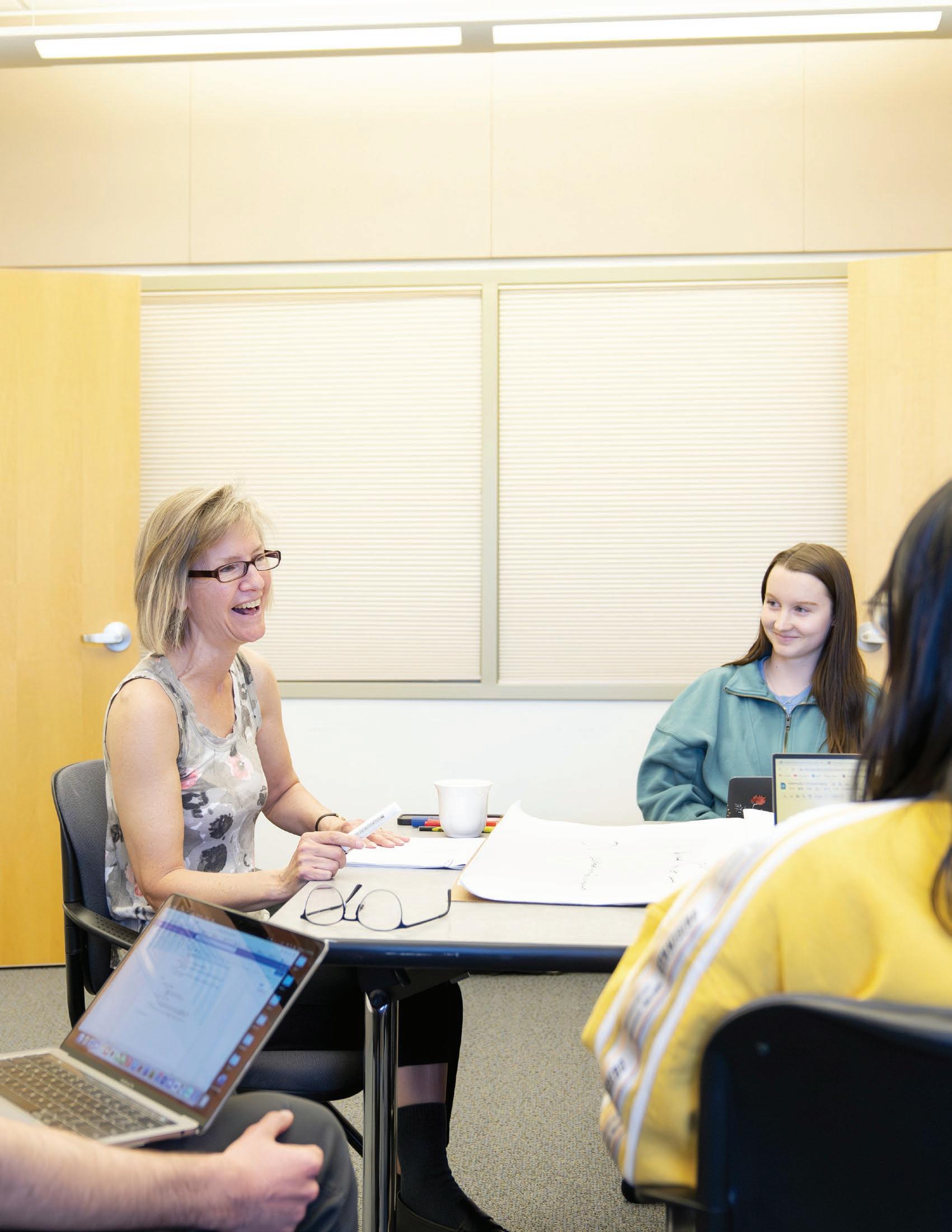
Three to five hours a day gives you so, so much more time and depth to deal with your material, to dissect your coursework, lab time, and so on. The Block Plan allows us to make it so much richer than it would be elsewhere.
We really take a look at the system of the medicalization of mental illness here in the U.S., and what it could look like — realistically — if we could rebuild it from the ground up? How would it better the world we live in?
It’s about humanization, based purely in empathy and interest, and seeing how we can translate theory into actuality. We don’t do field work to observe critically or with judgment, rather to understand the structures and spaces people are being treated in and how we would engage with changing those if or when we’re able to.
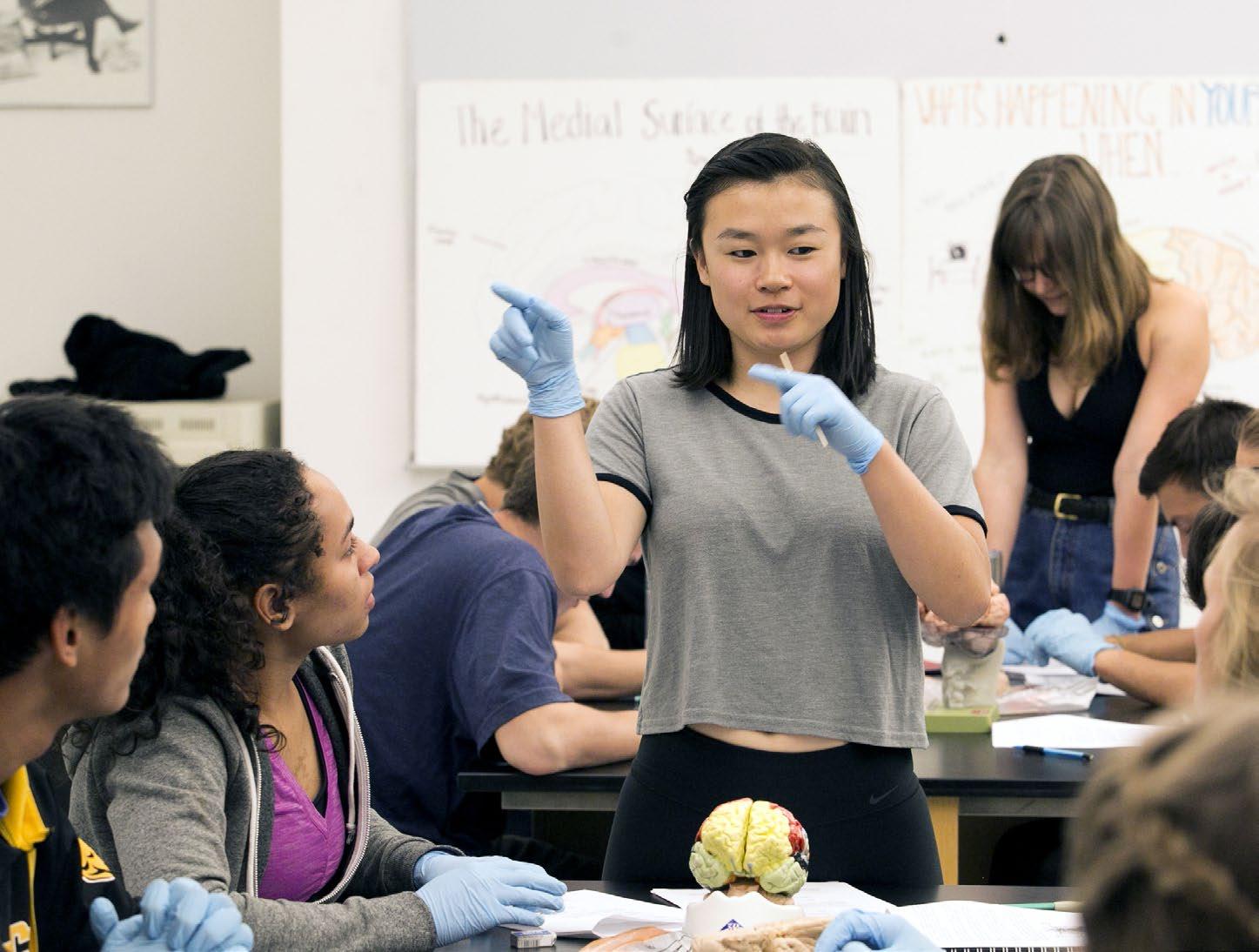
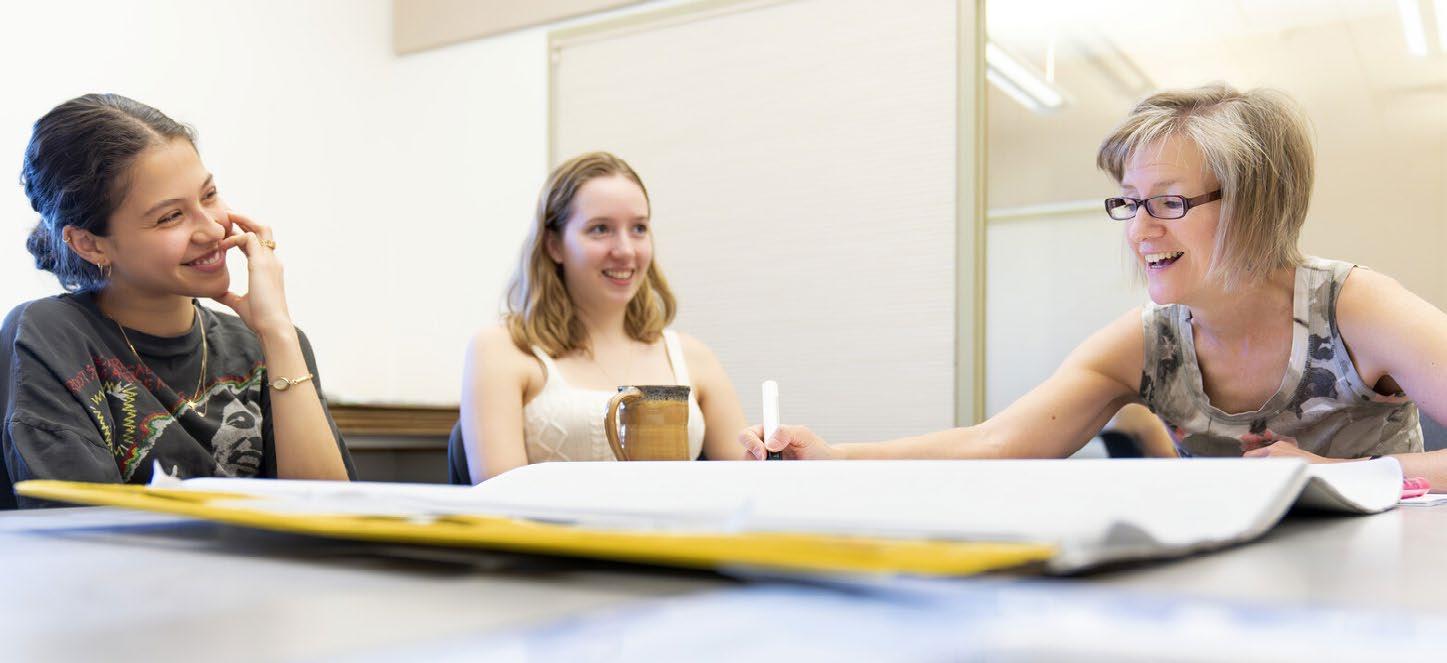
“As a student here, you get to a place where CC gives you the reins. What are you interested in? How are you thinking of improving it? We’re training people not just to get jobs, but to create jobs.”
 Corina McKendry
Corina McKendry

she / her / hers
Director of the Environmental Studies Program and Associate Professor of Political Science

What’s unique about CC students? They’re passionate, capable of understanding complex problems in nuanced ways. They’re finding their place and how to make a difference. It’s such a collaborative and supportive group of students. Competition isn’t a thing here. They support one another, and really feel that someone else’s success won’t detract from their own.
Why do you choose to teach at CC?
I went to a liberal arts college as an undergrad, and I loved it. The relationship with professors, depth of understanding, my whole world was transformed.
How have you seen CC address Antiracism, Diversity, Equity, and Inclusion?

We’ve been rethinking our syllabi; how do we diversify this field and talk about the history of science and who’s included or excluded? We’ve worked on remaking our field trips to offer increases in accessibility to the outdoors for all levels of comfort and mobility. We’re moving away from a lot of tests, utilizing alternative ways of demonstrating mastery.

“I’m here because this is my dream job. The reason I wanted a Ph.D. is to be here right now, to work with these students — so thoughtful and passionate — and my amazing and dedicated colleagues.”








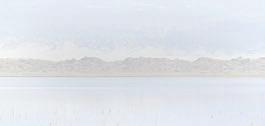
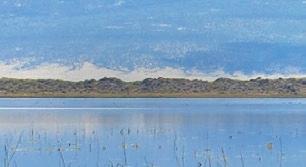






100% of students opt to study abroad

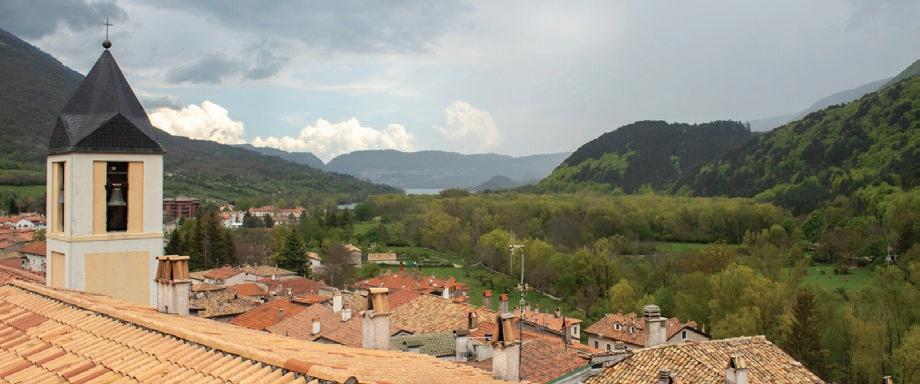


of Colorado College students will learn off campus
70%

Why stay within four walls when you can take a course that treks through the American Southwest or explores the world’s greatest artworks in New York City’s MoMA? Why not pursue academic explorations in Morocco, India, Japan, or Greece? On the Block Plan, classes have the flexibility and adaptability to take you off campus and engage in intercultural, international, and experiential learning in the field and worldwide.
Field study and study abroad are integral parts of life here at Colorado College. Utilizing both the Block Plan and our Rocky Mountain region (or the globe for that matter), our innovative and immersive academic experiences allow you to learn in ways that just aren’t possible elsewhere. They are both great ways — sometimes, once-in-alifetime opportunities — to get off campus for a few days or a few blocks and embed yourself in the environment you’re studying.
A professor and student explore micrometeorology in the Great Sand Dunes National Park.

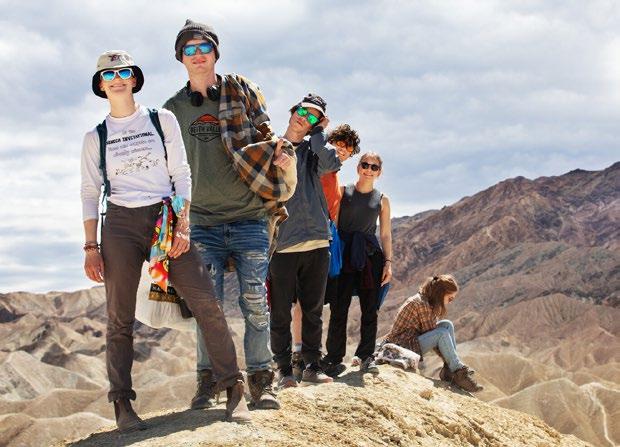 (Above) Journalism students get hands-on experience at news firms in Washington, D.C.
(Left) Students standing on a cliff in Death Valley, California, during their spring break roadtrip with Outdoor Ed.
(Above) A student explores the ancient Herculaneum ruins near Sorrento, Italy
(Above) Journalism students get hands-on experience at news firms in Washington, D.C.
(Left) Students standing on a cliff in Death Valley, California, during their spring break roadtrip with Outdoor Ed.
(Above) A student explores the ancient Herculaneum ruins near Sorrento, Italy






Established over 100 years ago as the Broadmoor Art Academy, the Colorado Springs Fine Arts Center at Colorado College is a world-class institution containing an art museum, a performing arts theatre company, and an arts school. The center acts as the bridge between art and academics. Students can catch major exhibitions and theatre productions, use the center’s massive collection of Southwest art for coursework and research, or participate in internships and work-study to learn and practice museum professions.
Participate in an internship with Colorado Public Radio at KRCC, CC’s professional NPR-member radio station.

Bluegrass culture is just one musical tradition with deep roots at CC, and all students have access to private music lessons.
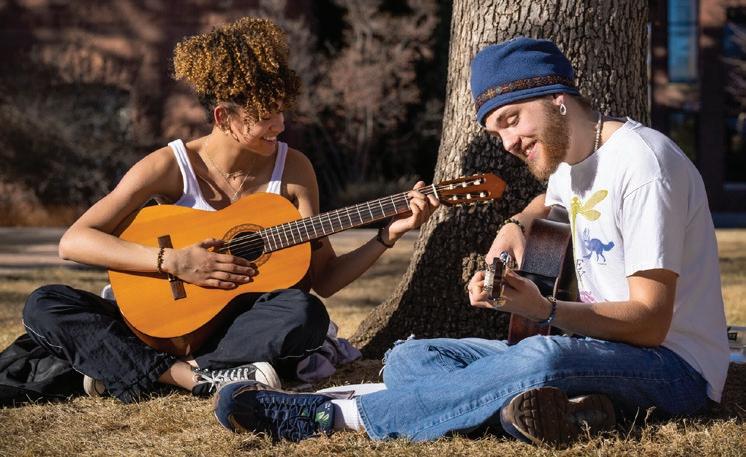
Get creative by making your own posters and other printed projects with manual letterpresses at The Press at CC.




Dance Workshop is one of the biggest, most thrilling campus traditions.



 Zeke Lloyd ’24 he / him / his Economics / Journalism Columbus, OH
Zeke Lloyd ’24 he / him / his Economics / Journalism Columbus, OH
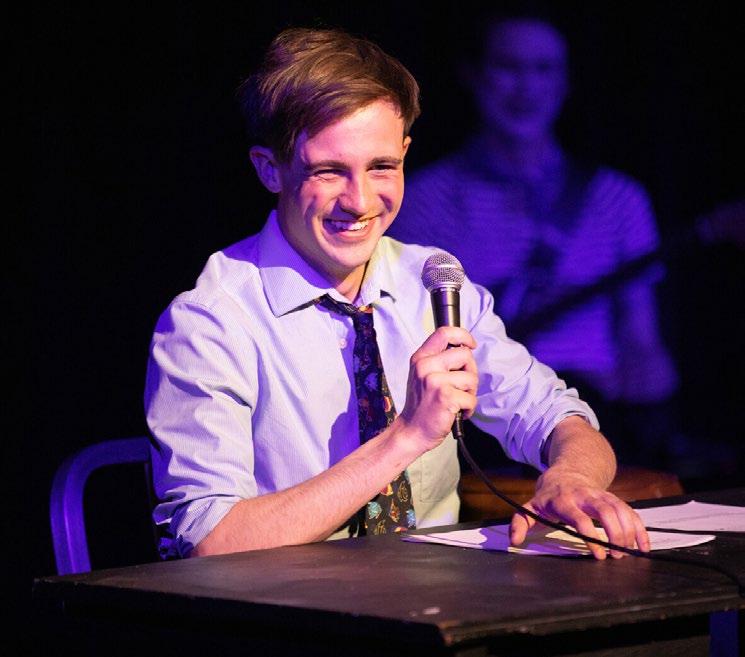
The faculty and mentors I have here at CC are invaluable. It’s so great to be able to go to these people who really understand my passion and career interests, and to have them help guide me. I am not seen as a statistical value to them. They’re always asking about my interests, suggesting classes, and checking in on me as a person and a student.
As an Econ major, I never feel removed from the application of the material I’m learning; everything is always grounded in reality and impact. I’m lucky that it’s such an expansive major. We’re always bringing sociology, political science, and history into the space and the diverse perspectives that those cultivate.
It’s not just the liberal arts, but it’s the liberal arts at CC that adheres to that mission in a way that lots of other schools just don’t do.



“CC has equipped me with the tools to exist in different, new spaces and environments that will help me figure out who I am. CC has helped give me that drive to be the voice for truth.”Located on campus, Ed Robson Arena is the home of CC Tiger hockey. Next door to the 3,400-seat arena is the Yalich Student Services Center, which includes a classroom, bookstore, mail room, and counseling and wellness resources.



Creativity and innovation are in our DNA. We infuse CC’s creative energy into exploring solutions for complex and dire issues facing your generation and our planet.
Through interdisciplinary courses and co-curricular programs, you’ll deepen your creativity, reflection, and risk-taking in order to assess, experiment, and innovate more clearly and confidently.


We embrace failure so that your next solutions are better and quicker. Building upon the rigors and outcomes of a Block Plan education, we’ll empower you with the confidence to make change in your communities and the world.




The international students here at CC have a unique connection, especially the United World Colleges students. It’s a small but really tight group. Working in the Butler Center is where I feel most comfortable on campus. It’s been really helpful in creating my community, allowing me to relate to and learn from people. I’m a theater kid, I’ve done it since I was young. With the work I’m doing now at the Butler Center, I want my career and my academic experience to go into the realm of ADEI work.


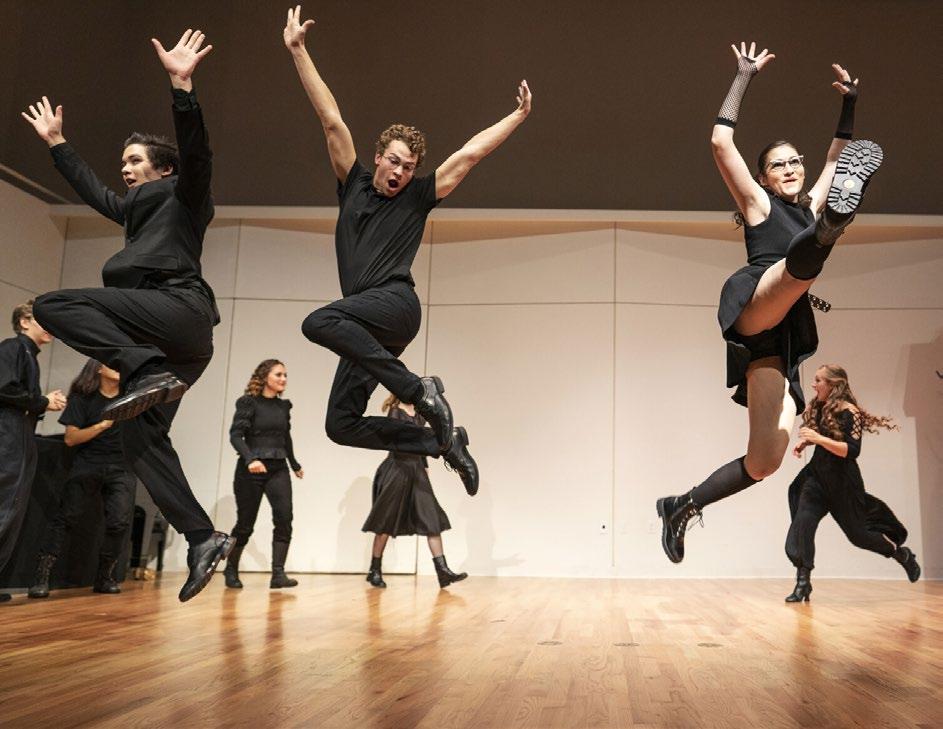
 Ben Ruddock ’26
he / him / his Undeclared London, UK
Ben Ruddock ’26
he / him / his Undeclared London, UK
“The faculty I’ve had have been incredible, really supportive. They give students grace and compassion, and really care about you. They care and understand that the Block Plan is intense. They’re supportive, and always offer ways for you to catch up or address life.”
 The campus of Colorado College is framed by Pikes Peak (left) and Garden of the Gods (right).
The campus of Colorado College is framed by Pikes Peak (left) and Garden of the Gods (right).





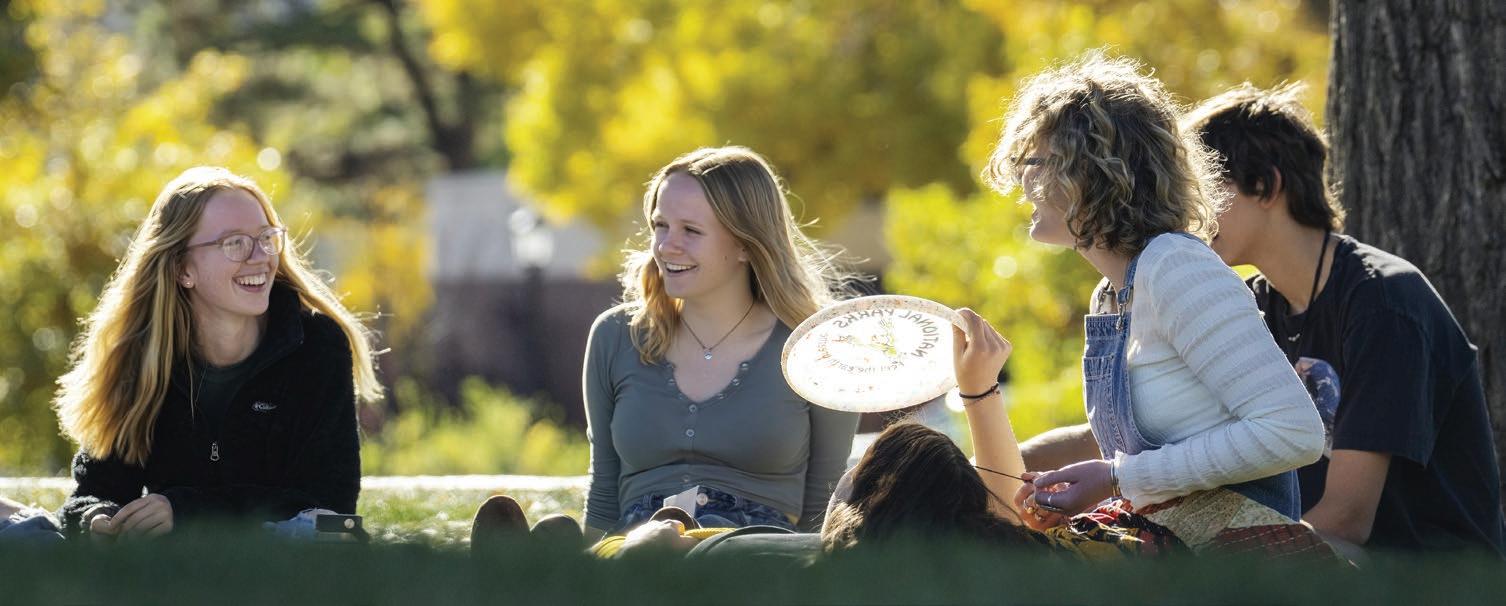
Recent years have reshaped our social, political, emotional, and mental landscapes. The stressors we’ve all felt are real, and their impacts are still rippling through all of us.
In 2022, CC made formal commitments to raising the level of mental healthcare, access, and support. We offer a number of facilities and programs to support the mental and emotional wellbeing of our students, faculty, and staff. The Wellness Resource Center serves as a hub for wellbeing and health promotion, acting as a resource for students who need guidance and assistance. A fully-staffed Counseling Center operates on campus, offering students counseling sessions at no cost. CC also partners with a 24hour mental health provider to provide free access to students for all-hours concerns.
 Raul
Professor of Music
Raul
Professor of Music

CC students are geared toward making change, and they have a desire to experience the best of what’s possible. Having a social justice component of the music major is key for our students. They want to explore ways to do that meaningful work through the arts.


We’re always playing with the idea of positionality in our work, trying to get away from true objectivity. As a musicologist, I try to model to students that this is my one interpretation of the materials at hand, and that their interpretation is another. Interpretation is the exciting part of this work, it always offers new perspectives and different lenses of focus.
 Ryan
Bañagale ’00 he / him / his Department Chair, Associate
Ryan
Bañagale ’00 he / him / his Department Chair, Associate
“The pillars of sustainability, mental health, and antiracism are all interconnected ideas, and they’ve really created a change in workspace culture as well as the classroom.”


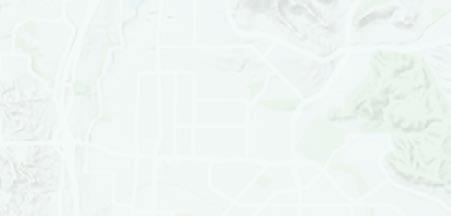




United States Air Force Academy: Visitors may access several overlooks across the Academy, the Cadet Chapel, the Honor Court, Arnold Hall, the Cadet Field House, the Falcon Athletic Center, Falcon Stadium, and the Visitor Center.


www.usafa.edu/visitors
Manitou Springs: Enjoy an afternoon of shopping, dining, and people-watching in this neighboring quirky little town.

www.manitousprings.org



Garden of the Gods Park: This registered National Natural Landmark is a beautiful scenic experience. Bring a picnic, a bike, or your hiking shoes and spend the day exploring.


www.gardenofgods.com



The Incline: Just less than a mile in length, this famous trail is 2,768 steps that gain 2,000 feet in elevation and is not for beginner hikers. Advance online reservations are required.

www.coloradosprings.gov/parks/page/manitou-incline
Colorado Springs Fine Arts Center at Colorado College: Built on the foundation of the prestigious Broadmoor Art Academy, the FAC carries the legacy of Colorado’s arts and cultural heritage.

fac.coloradocollege.edu
Red Rock Canyon Open Space: A city park located between Colorado Springs and Manitou Springs, the open space has 11 miles of trails and great views of Garden of the Gods.
www.redrockcanyonopenspace.org
U.S. Olympic and Paralympic Museum: The 60,000-square-foot space includes 12 galleries and several interactive exhibits.

www.usopm.org




North Cheyenne Cañon Park: This 147acre regional park includes 56 miles of hiking and biking trails, boulders for climbing, and two visitor centers. Make sure to check out Helen Hunt Falls, a 35-foot waterfall.




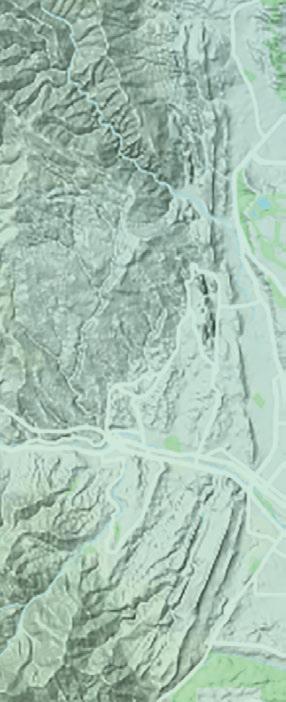
www.cheyennecanon.org
Pikes Peak Highway: The 19-mile highway is open year-round (weather permitting), and provides stellar views of both Colorado Springs and Pike National Forest. For an extra treat, visit the donut shop at the summit!

www.coloradosprings.gov/drivepikespeak
Cheyenne Mountain Zoo: Visit America’s only mountainside zoo, located 6,800 feet above sea level. Feed the giraffes, visit 119 species, and ride the Sky Ride.

www.cmzoo.org




Downtown Colorado Springs: Take a stroll down Tejon Street and explore the downtown culture of Colorado Springs. Enjoy fine restaurants, cafés, shops, and parks.

www.downtowncs.com








The Broadmoor: You don’t have to be a guest at this five-star resort to enjoy its fine dining and scenic walkways. Enjoy dinner in one of its many restaurants before taking a walk around the beautiful Broadmoor Lake.
www.broadmoor.com


To say that CC’s location is unique would be an understatement.
With hundreds of miles of trails, dozens of state and national parks, world-class skiing, live music, hubs for artistic creativity and more all nearby, the CC experience is truly enriched by where we do our living and learning. From every vantage point on campus, it’s hard to miss the awe-inspiring mountain to the west. Pikes Peak, or what the Indigenous and native communities of the region call “Tava`Kaav” or “Sun Mountain”, looks over the unceded territory of the Nuùchi (Ute) People who once dwelled, hunted and gathered, and performed ceremonial traditions on the land. Their descendants, and descendants of other Indigenous tribes, continue to honor and live in the region today. We work daily to honor the land and its history.
Colorado Springs is home to 700,000+ people, and it combines all the access and opportunity of a major city with the community feeling of a small town. The downtown area is vibrant and buzzing with independently-owned cafés, shops, and artist studios. And just an hour up the road you’ll find Denver, the state capital, with major transit links to the entire world, and a whole new pool of exciting things to see and do, and opportunities to explore.
It’s rarified air up here. Catch your breath and let’s have some fun.
Associate Professor, Southwest Studies


Since I got to CC, I’ve been really surprised and elated by the community and the things there are to do. There’s a huge shift in arts and culture happening here and those things are becoming more prevalent each day. Regional history is being more recognized, and CC is making a concerted effort to bring the community to campus, to bridge that divide that sometimes happens. The first generation and student of color demographics have shifted considerably at CC over recent years, and there’s a real sense of a deliberately built community happening here.
 Karen Roybal
she / her / hers
Karen Roybal
she / her / hers
“If you have a vision for something at CC, you can probably make that happen. Envisioning isn’t just possible, it’s encouraged. The opportunities are there for students, but also for faculty.”
 CC anthropology and archaeology students venture to the San Luis Valley to conduct field surveys with the United States Forest Service and look for evidence of the Old Spanish Trail. The stars are clear as day at the Baca campus.
CC anthropology and archaeology students venture to the San Luis Valley to conduct field surveys with the United States Forest Service and look for evidence of the Old Spanish Trail. The stars are clear as day at the Baca campus.




CC’s Outdoor Education Program allows you to develop leadership skills, a sense of stewardship, and self-discovery through experiential opportunities in the outdoors. You have unfettered access to the Gear House, which supplies every type of outdoor equipment you can imagine: backpacks, sleeping bags, tents, ski equipment, kayaks, bikes, and more for your adventures. If you want to join a trip or skills clinic, Outdoor Ed pledges inclusivity and offers financial aid.



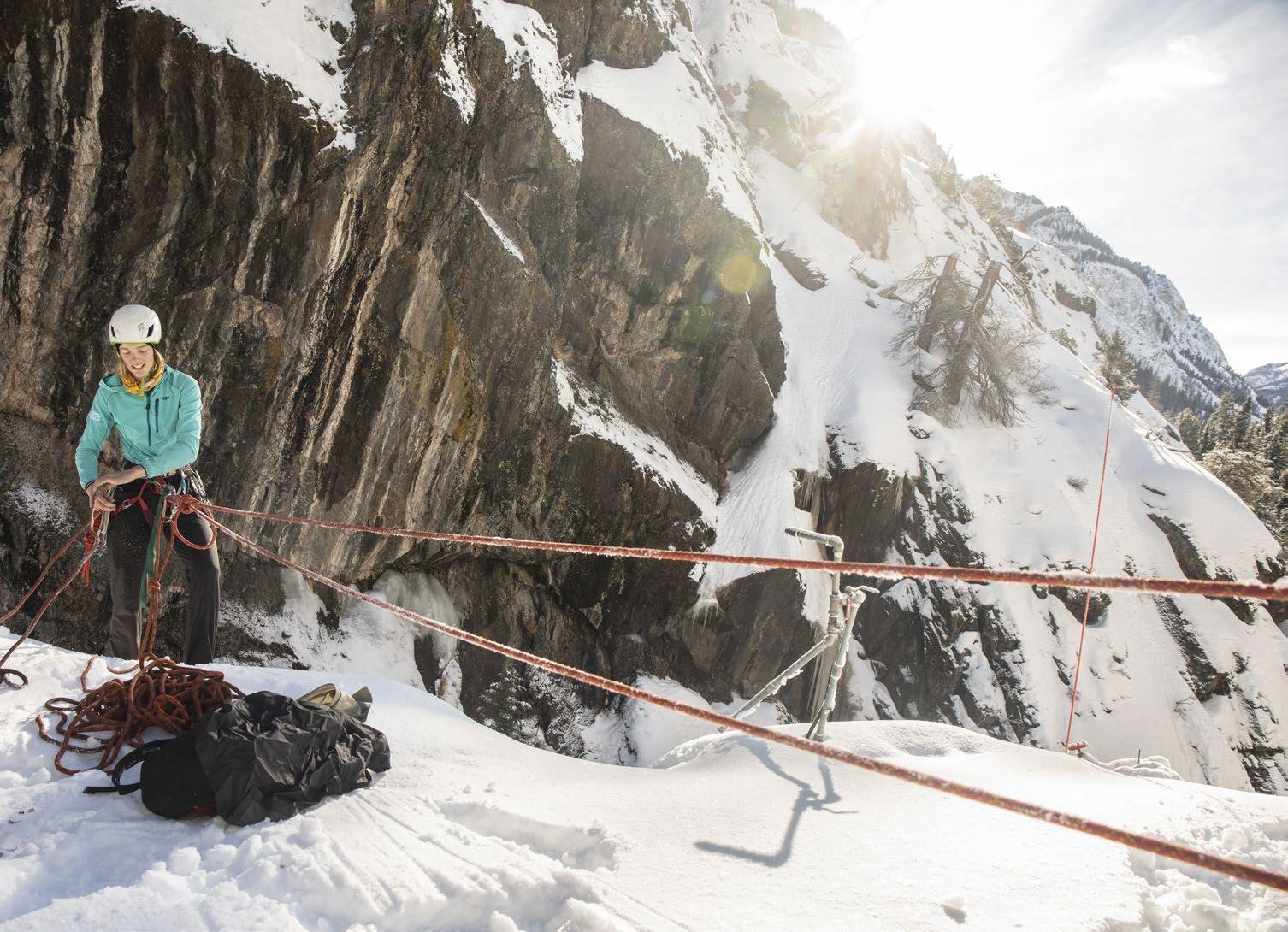



In 2020, we achieved campus-wide carbon neutrality, becoming only the eighth institution in North America and the first in the Rocky Mountain region to execute this feat.
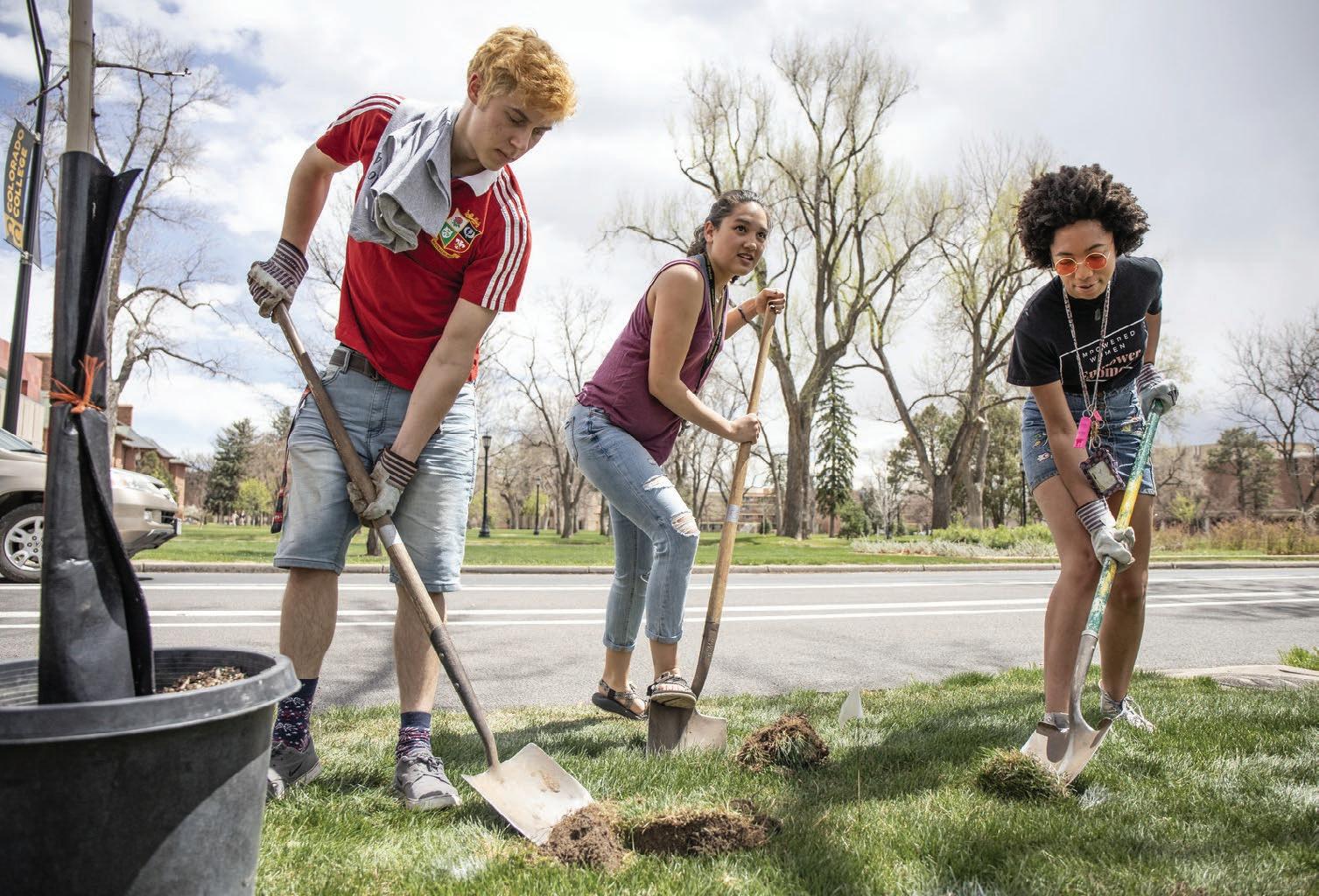

Through efficiency upgrades, building renovations, campus engagement, and on-site renewable energy, we reduced our carbon footprint even as our physical footprint expanded by 10%.



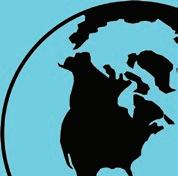
A sample of achievements made toward carbon neutrality, 2009-2023.

CC ranks #10 in the country for taking inventory of greenhouse gas emissions and reducing air pollutant emissions that impact the health of our local community and region.


2,303 trees
The CC community took over 19,400 trips on PikeRide, totaling over 23,400 miles in one year.

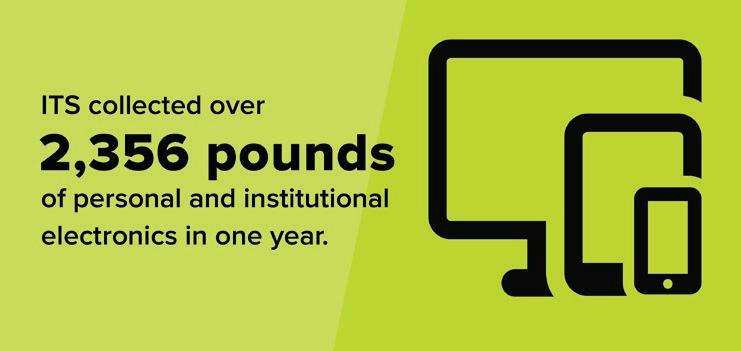
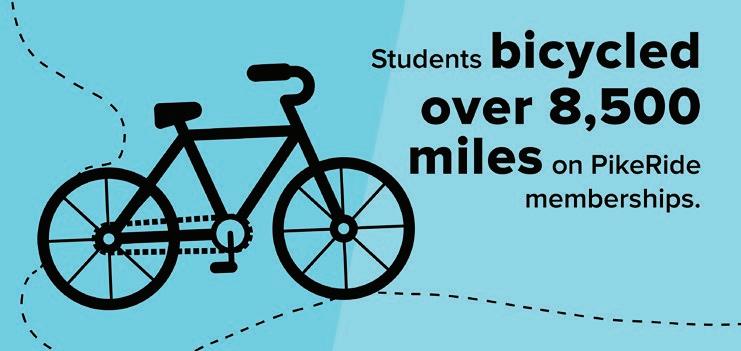

2,389 pounds
Every new major building project must meet sustainability and carbon-free benchmarks. At CC, clean energy is a committed investment, not only in expressed values but in the resources to back it up, too.


Reaching our goal took a community-wide effort involving committed leadership, trailblazing faculty and staff, and earnest students. In fact, it’s often our students who lead the charge for sustainable action. We continue to apply CC’s tenacity and innovation to make more strides around climate action, building resiliency and a sustainable future for generations to come.
 CC oversees the health and maintenance of across 100 acres on campus.
CC oversees the health and maintenance of across 100 acres on campus.
At Colorado College, our mission to providing the finest liberal arts education in the country means that each and every student feels included, supported, and welcomed. We are committed to creating a space where antiracism, diversity, equity, and inclusion (ADEI) aren’t just simple buzzwords, they’re bastions of our community.
In 2019, Colorado College became one of the first colleges in the country to formally commit to becoming an antiracist institution — actively engaging in the process of identifying and opposing racism in all its forms and functions in our community. This commitment is central to our mission and it serves as the foundation for all of our ongoing work toward creating a more inclusive, equitable, fair space.



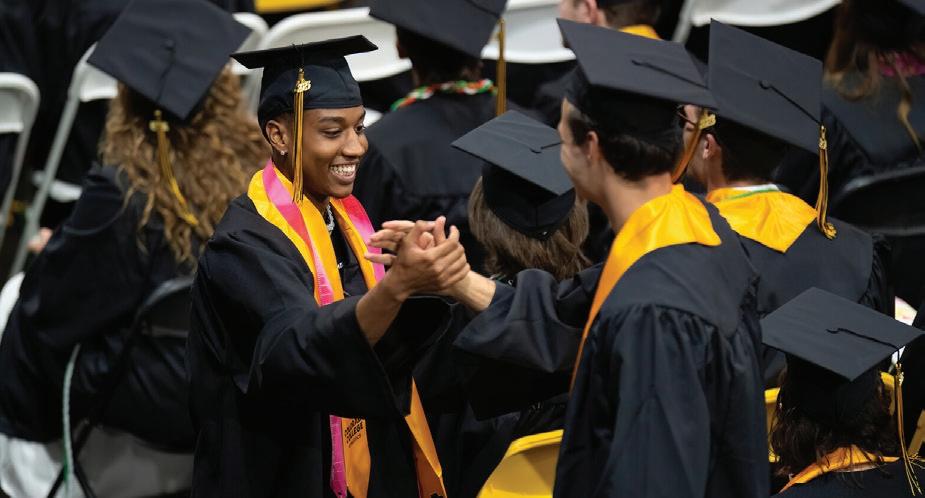
CC has always been a home for activists and change-makers. Today, our mission is supported by ADEI trainings and events across the faculty, staff, and student body — from scholarly visits and lectures, to workshops and discussion groups. The college’s Butler Center facilitates our antiracist focus and serves as a student hub for resources, community, and engagement in ADEI work and growth. Every aspect of campus life is planned through an antiracist lens – from community events to student services to course development.

Each step along this journey will bring much-needed accountability and reflection. We’re more committed now than ever to living, learning, and bettering ourselves and this community. Whether it’s renaming Tava Quad or increasing our faculty of color from 42 to 61, an increase of 8%, or our BIPOC and International students from 23% to 32%, we are always aiming for a more full, rich, and inclusive community. Institutionally, we’re working also on prioritizing mental health and wellbeing for our community, expanding financial aid for students, conducting an equity audit of our student handbook, and more.

It’s a commitment that will take every single one of us. Especially you. Join us, and let’s get to work.
I’m a transfer student. Initially, I was very overwhelmed coming from a semester system. I spoke with my coach and professors, and they were amazing in providing me resources to get up to speed and find comfort here. [My major] is rigorous but it’s a really cool major — I’m able to take it a lot of different ways to explore. I come out of classes knowing how to solve problems in the real world. ADEI was actually one of the points about CC that stood out to me. I wanted to be in a space where I felt safe, and wanted people to actively try to understand my perspective.

 Shalom Prince ’24 she / her / hers Business, Economics, and Society Aurora, CO
Shalom Prince ’24 she / her / hers Business, Economics, and Society Aurora, CO
“Throughout the classes I’ve had, there’s been an antiracist aspect that always emphasizes that I matter here and that there are allies here.”H. Knox Huang ’24


he / him / his Psychology / Philosophy Shanghai, China
The idea of science in practice and application, used in daily life as a helping profession — it really excites me. I realized I also wanted to major in philosophy after taking a class from John Riker. It’s so interesting to see how philosophy can be so relevant to daily life, so vibrant. That “why” part, why we’re doing what we are and where it all comes from. I know I want to go to grad school for clinical psychology, and make a career in helping people.


“Growing community has been a big part of my CC experience. The Residential Advisor role allows me to be there for people and do meaningful things in my community. I cherish the oneon-ones with my residents.”A large, playful, action-based painting exercise in which students used their own bodies as paint brushes.
Students celebrate Holi, an ancient Hindu festival during which people throw colors at each other and celebrate with music and dancing.

You have a place at CC — and when we say you, we mean however you identify yourself and want to be heard, seen, and known. You can choose from various residence halls, apartments, cottages, and themed housing, such as language houses, multicultural housing, quiet and substance-free options, and dynamic living and learning communities established by students like you. Wherever you live, you’ll settle into a college routine and discover a world of unique individuals coming together to build community.
Maybe it’ll be your roommate, the person you sit next to in your first class, or someone at an open table at lunch. You never know when you’ve found your college best friend, a forever friend, someone who’ll make you laugh, clap your back when finals are done, or be your go-to person to watch hockey games. But one thing’s certain: they’re at CC, and they’re ready to meet you.



Wyoming’s lone member of Congress in the U.S. House of Representatives from 2017–2023








Environmental Science major
What is your title/company? Research analyst, Carbon Solutions, LLC

















What did you like about Colorado Springs? Coming from the East Coast, I loved the change environmentally. The first winter here, it was 70 degrees in February. I was wearing shorts in the snow! I think Colorado Springs is one of the best, most underrated places in the country for outdoor access. It’s incredible how close everything is.
How did the Block Plan help you?

The Block Plan is definitely a double-edged sword, but it’s helped me so much in my professional life. I’m much better on a deadline, and with managing my time, because of the Block Plan. You can really take the time to dive into something, that’s the gift of the Block Plan. CC taught me to embrace the mesh of work and play, and that each is as important as the other. It really pushed me toward the idea of doing what you do really well, and also taking care of yourself within that work.




Math-Economics major

How did you build further community at CC?

I actually dropped out of high school to be a professional gamer, and so at CC I missed my indoorsy people! CC Esports started because I found gamer friends in my dorm. By junior year, the club had grown sufficiently — we were competing against other schools and other programs. My senior year we won the SCAC Division III championship, and now the program has over 150 kids; it’s great to see how they’ve continued to grow and broaden it. CC’s one of those places where anything I wanted to do, I could do. You have to put in the work, but if you decide to do something at CC, you’ll find people to do it with you. That energy from CC, and the people there, makes the journey so worth it.
What do you do now?

I run a startup. We are a Generative AI company, using large language models to create new things through machine learning, specializing in converting video content into tutorials. Just like at CC, my business is on a Block Plan — a five-day weekend goes a long way! The key element to the Block is the break, and that works in the real world as well.
 ELIZABETH CHENEY ’88
DEAN WINTERS ’86
Film and television actor; “Mayhem” in Allstate commercials
GLENNA GOODACRE ’61 Renowned sculptor
RYAN HAYGOOD ’96
Civil rights lawyer and CEO MARGARET LIU ’77 Physician and vaccine developer
ELIZABETH CHENEY ’88
DEAN WINTERS ’86
Film and television actor; “Mayhem” in Allstate commercials
GLENNA GOODACRE ’61 Renowned sculptor
RYAN HAYGOOD ’96
Civil rights lawyer and CEO MARGARET LIU ’77 Physician and vaccine developer

Physics major

What is your title/company? Lead analytics consultant, United States Olympic and Paralympic Committee

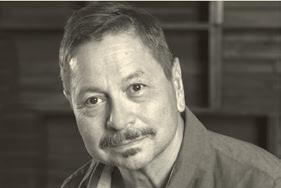













Are there any particular skillsets you learned at CC that are useful to you now? While I’m not directly applying physics principles or doing physics research, the problem-solving skills learned during my time in the physics department as well as the ability to model real-world observation through mathematical models are huge assets in my current job.




What was your first job out of college? My first position after CC was a direct result of a program at the college. I participated in the joint CC/USOPC externship program, which designates a handful of one-year fellowships at the USOPC to graduating CC seniors each year. I participated in the fellowship in the competitive analysis department, and have been lucky enough to continue at the USOPC ever since.
Sociology major

What is your title/company? Executive director, Inside Out Youth Services, the LGBTQ+ youth community and outreach advocacy center


How is your major related to your current work?
I’ve always thought social justice work is social theory in action. Sociology prepared me to understand structural inequities. Working in the queer community has helped me understand how to challenge, dismantle, and work against inequities powered through community and grassroots activism. Plus, the block program taught me how to work really hard and really quick. Which is essential in the nonprofit community.
How did your experience at CC help you find your first position after graduation?
I hosted our first fundraiser at Cornerstone Arts Center, where we paired up our artists with community artists to create a wearable art show to express how it feels to be in community with a disability. We had over 300 attendees. I learned a lot. And made a lot of mistakes. After that point, I started getting involved in policy activism, civil rights, and LGBTQ+ activism. I have been involved in that work ever since.
MARCIA McNUTT ’74 Geophysicist and president of the National Science Foundation ELLAMARIA RAY ’85 Professor, anthropologist, and visual and performing artist MICHAEL NAVA ’76 Attorney and mystery writer JEREMY ZUCKER ’18 Singer, songwriter, and recording artist PEGGY FLEMING ’70 Gold medal Olympic figure skaterAnthropology
Art
Asian Studies
Business, Economics, and Society (BESoc)
Chemistry & Biochemistry
Classics
Classics-English
Classics-History-Politics
Comparative Literature
Computer Science
Economics
Education
English
Environmental Studies
Feminist & Gender Studies
Film & Media Studies
French
Geology
German History
History-Philosophy
History-Political Science
Independently Designed Major/IDM
International Political Economy
Italian
Mathematical Economics
Mathematics
Molecular Biology
Music
Neuroscience
Organismal Biology & Ecology
Philosophy
Physics
Political Science
Psychology
Race, Ethnicity, & Migration Studies
Religion
Russian & Eurasian Studies
Sociology
Southwest Studies
Spanish & Portuguese
Theatre & Dance
There are 28 thematic minors, which focus on themes from several disciplines. These range from Indigenous Studies to Journalism to Performance Design.
Accreditation & Non-Discrimination
• Founded in 1874
• Colors: Black and Gold
• Mascot: Tiger
• Total undergraduates: 2,425
• 48 U.S. states and 47 countries represented

• Number of faculty: 219
• Percentage of students living on campus: 80%
• Athletics: 17 varsity sports, 15 club, and 16 intramural
• Computer labs/ITS: Five, plus residence hall, departmental, and satellite labs across campus
• Campus residences: Traditional residence halls, small houses, themed housing, apartments, and cottages
• Dining options: Rastall Café, Benjamin’s, The Preserve, Local Goods, Colorado Coffee, and Susie B’s Café
Smoking Policy
CC is a smoke- and tobacco-free campus.
Accessibility
Our Office of Accessibility Resources celebrates access, equity, and inclusion across our community. Every student — with every ability — is welcomed and assisted here.
Colorado College is accredited by the Higher Learning Commission. Colorado College is an equal opportunity employer committed to increasing the diversity of its community. We do not discriminate on the basis of race, creed, color, caste, national origin, gender, age, religion, gender identity or expression, disability, or sexual orientation in our educational programs and activities or our employment practices.
Visit Schedule a visit with us at: coloradocollege.edu/visit
Visit us virtually at: coloradocollege.edu/#virtualtour
Build Your Block Plan
See how the Block Plan works by building a mock schedule for your first year. Visit: coloradocollege.edu/yourblockplan
Apply
Join us! To start your application, go to: coloradocollege.edu/apply
Financial Aid
We offer a strong financial aid program that enables students from all socioeconomic backgrounds to attend and thrive at Colorado College. For additional info, please visit: coloradocollege.edu/financialaid
Tuition & Fees
Find tuition and fees at: coloradocollege.edu/tuition
Social Media
@coloradocollegeadmission and @coloradocollege facebook.com/coloradocollege @coloradocollege
Contact information
Get in touch, we want to hear from you! coloradocollege.edu/admission
Meet your rep: coloradocollege.edu/meetyourrep
Office of Admission: (719) 389-6344
Toll-Free: (800) 542-7214
Mailing Address: 14 E. Cache La Poudre St. Colorado Springs, CO, 80903
Seattle: 1,066
Salt Lake City: 395
San Francisco: 954
Phoenix: 552
Dallas: 615
New Orleans: 1,036
Miami: 1,693
Nashville: 1,006
New York City: 1,636
Boston: 1,776
Toronto: 1,358
Chicago: 928
Minneapolis: 730
Denver: 63
The Baca Campus lies 160 miles south of the main campus, just a short drive from the Great Sand Dunes National Park. The campus is made up of lodges, townhomes, a conference center, and nature trails. It is a great place to focus on your studies, whether that’s writing poetry, charting the stars, or diving into the cultures and traditions of the Southwest.


A campus near the Rocky Mountains wouldn’t be complete without its own cabin! The Gilmore Stabler Cabin is 33 miles northwest of the main campus. Classes use the cabin to focus, including in language courses where students can only speak a foreign language the entire time they are there. It is a prime location for Outdoor Education expeditions, retreats for student organizations, and for savoring some solitude and wilderness with your friends.
